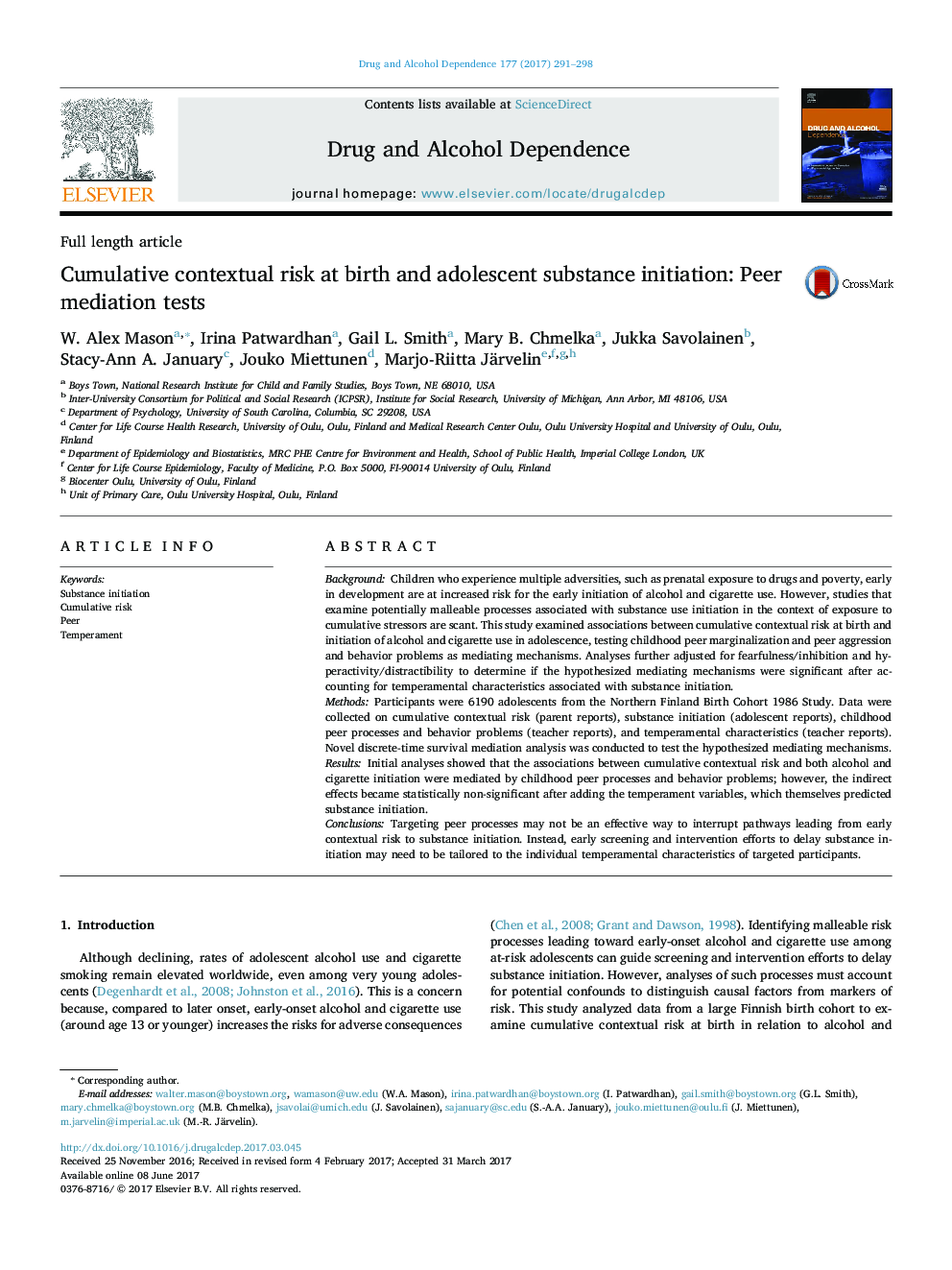| کد مقاله | کد نشریه | سال انتشار | مقاله انگلیسی | نسخه تمام متن |
|---|---|---|---|---|
| 5120052 | 1486114 | 2017 | 8 صفحه PDF | دانلود رایگان |
- Cumulative contextual risk at birth predicted adolescent substance initiation.
- Childhood peer aggression and marginalization served as mediators in initial analyses.
- These mediation effects disappeared after adjusting for temperamental characteristics.
- Screening and intervention for at-risk youth may need to be tailored to temperament.
BackgroundChildren who experience multiple adversities, such as prenatal exposure to drugs and poverty, early in development are at increased risk for the early initiation of alcohol and cigarette use. However, studies that examine potentially malleable processes associated with substance use initiation in the context of exposure to cumulative stressors are scant. This study examined associations between cumulative contextual risk at birth and initiation of alcohol and cigarette use in adolescence, testing childhood peer marginalization and peer aggression and behavior problems as mediating mechanisms. Analyses further adjusted for fearfulness/inhibition and hyperactivity/distractibility to determine if the hypothesized mediating mechanisms were significant after accounting for temperamental characteristics associated with substance initiation.MethodsParticipants were 6190 adolescents from the Northern Finland Birth Cohort 1986 Study. Data were collected on cumulative contextual risk (parent reports), substance initiation (adolescent reports), childhood peer processes and behavior problems (teacher reports), and temperamental characteristics (teacher reports). Novel discrete-time survival mediation analysis was conducted to test the hypothesized mediating mechanisms.ResultsInitial analyses showed that the associations between cumulative contextual risk and both alcohol and cigarette initiation were mediated by childhood peer processes and behavior problems; however, the indirect effects became statistically non-significant after adding the temperament variables, which themselves predicted substance initiation.ConclusionsTargeting peer processes may not be an effective way to interrupt pathways leading from early contextual risk to substance initiation. Instead, early screening and intervention efforts to delay substance initiation may need to be tailored to the individual temperamental characteristics of targeted participants.
Journal: Drug and Alcohol Dependence - Volume 177, 1 August 2017, Pages 291-298
